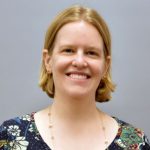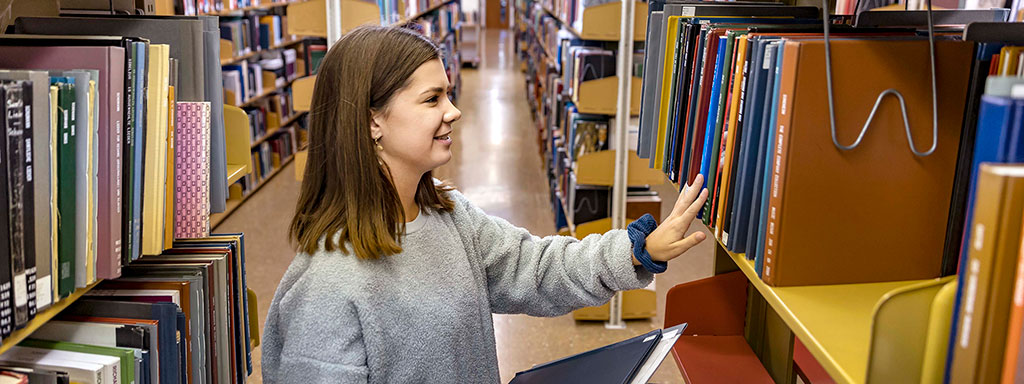M.S. in Library Science
Overview
Prepare for a prestigious career as a leader in library and information science. For over 90 years, we’ve helped students develop superior skills for this dynamic and changing field. Learn how to collect, organize, store, and retrieve the world’s recorded knowledge. Develop not just theoretical knowledge, but the ability to apply theories in real-world situations.
This on-campus program allows students to form close relationships with peers and professors. Connect with members of our passionate alumni community in a wide range of industries and professions.
Customize Your Experience
Our highly flexible program allows students to customize their learning experience through options such as:
- A concentration in archives and records management
- An informal specialization or certificate
- A capstone experience consisting of either a research-based paper or a practicum project
- Preparation for school library media licensure
Gain Hands-On Experience in the Field
The SILS Field Experience Program enables students to gain 135 hours of professional experience in an information organization while receiving three hours of class credit. Field Experience can be completed during the fall, spring, or summer term. Students are mentored by both a supervising professional in the organization (site supervisor) and a full-time SILS faculty member (faculty supervisor). Students also engage in a course seminar.
Working Outside Libraries
Academic, public, school, and special libraries are all destinations for MSLS graduates. In this video, SILS alumna Sara Trettin talks with students and recent graduates about library science roles outside of libraries.
Careers in Library Science
Graduates of this program find exciting careers around the world in a variety of settings, such as: academic institutions, government agencies, archives, public and special libraries, school library media centers, non-profits and cultural institutions, and other information agencies.
Upon graduation, our students have accepted positions such as:
- Archives Technician, National Archives and Records Administration
- Digital Assets Librarian, Hillwood Estate, Museum, and Garden, Washington, D.C.
- Electronic Resources Management Librarian, Duke University
- Natural Science and Mathematics Librarian, University of Houston
- Senior Developer, Analytics at Hearful
- User Experience Resident Librarian, University of Chicago Library
- Web Application Developer, Wildfire
Application Information
For complete details on application deadlines, tuition, financial aid, and the application process, visit our master’s degree information page.
 Questions?
Questions?
Contact Lara Bailey
Graduate Programs Assistant Director
ljbailey@email.unc.edu or 919-962-7601





